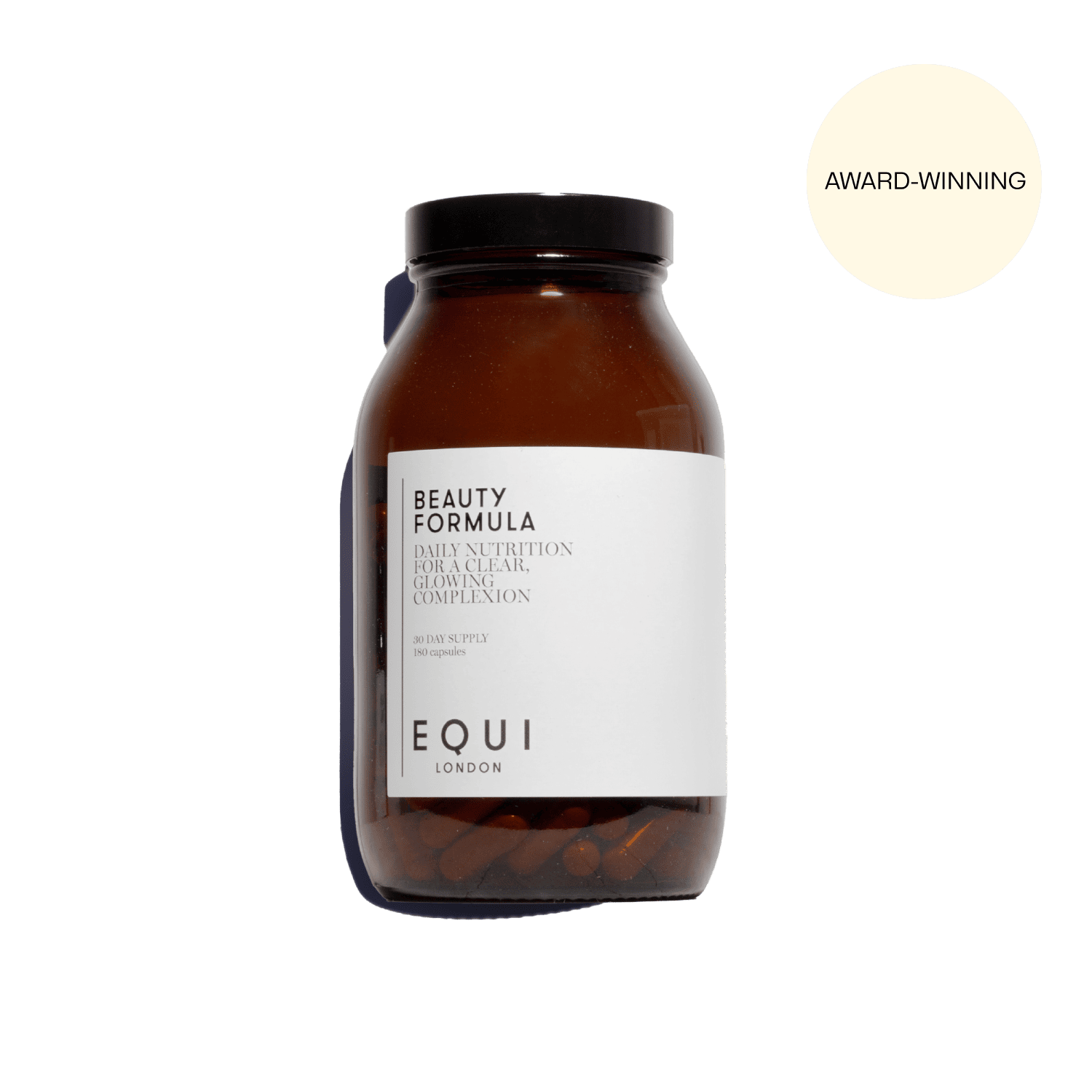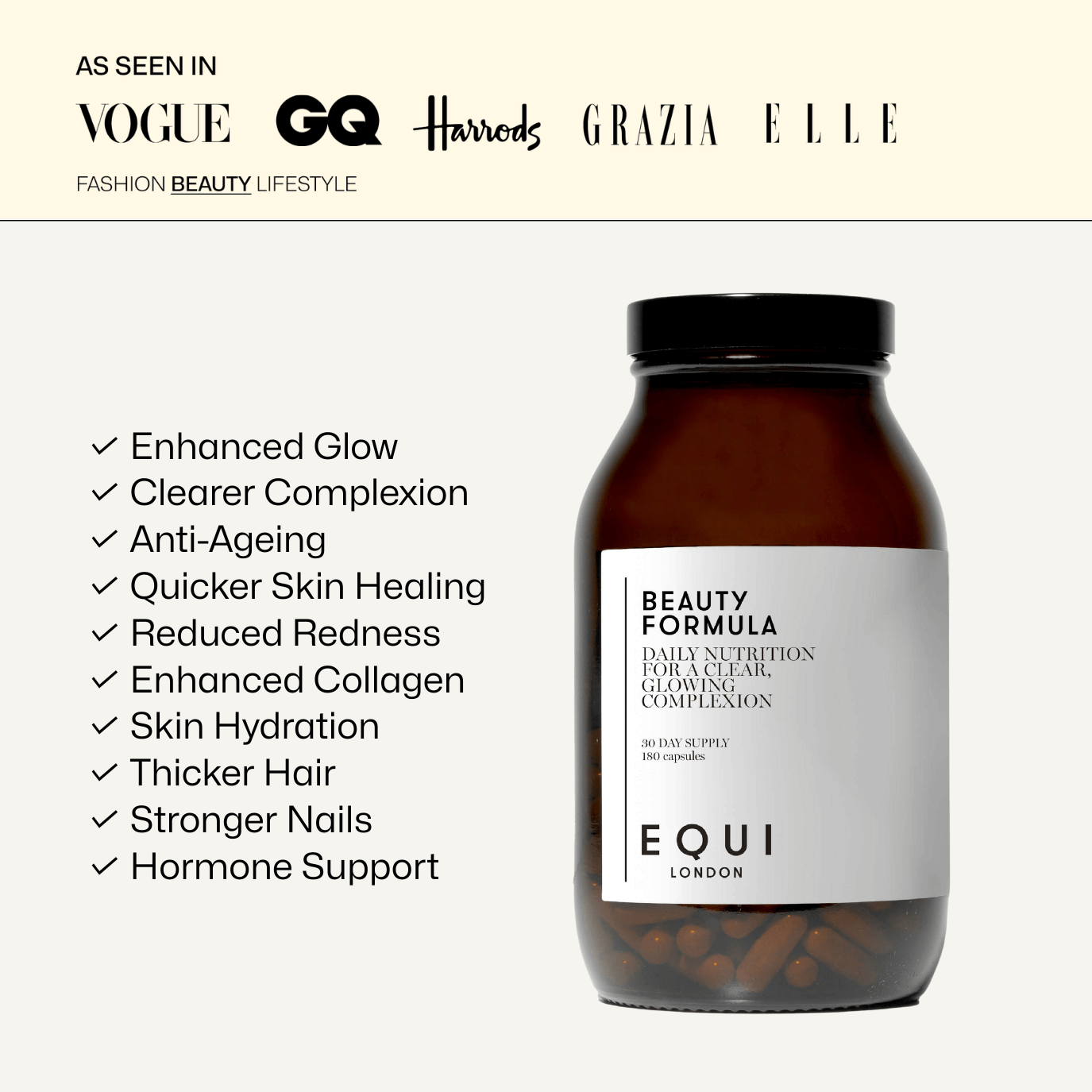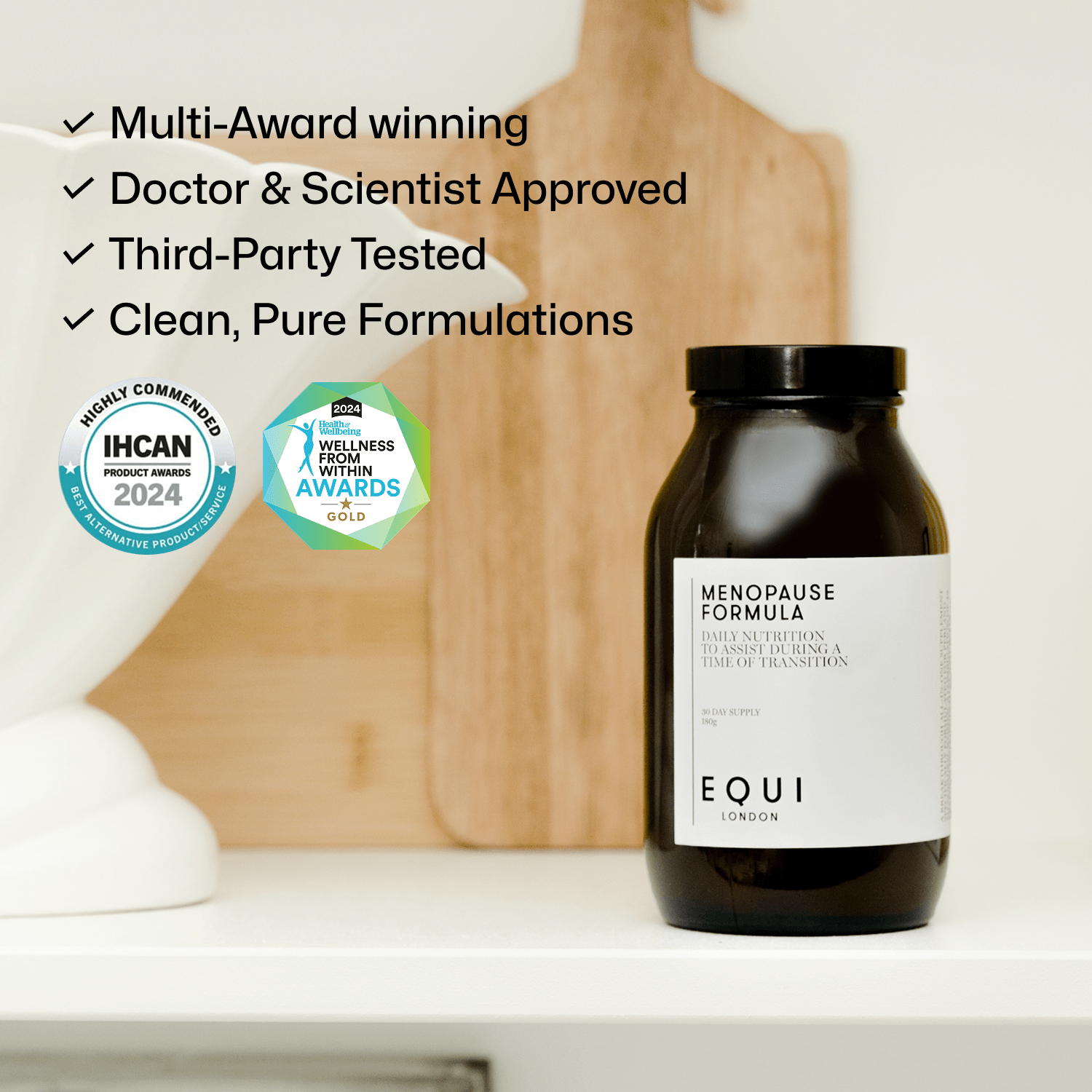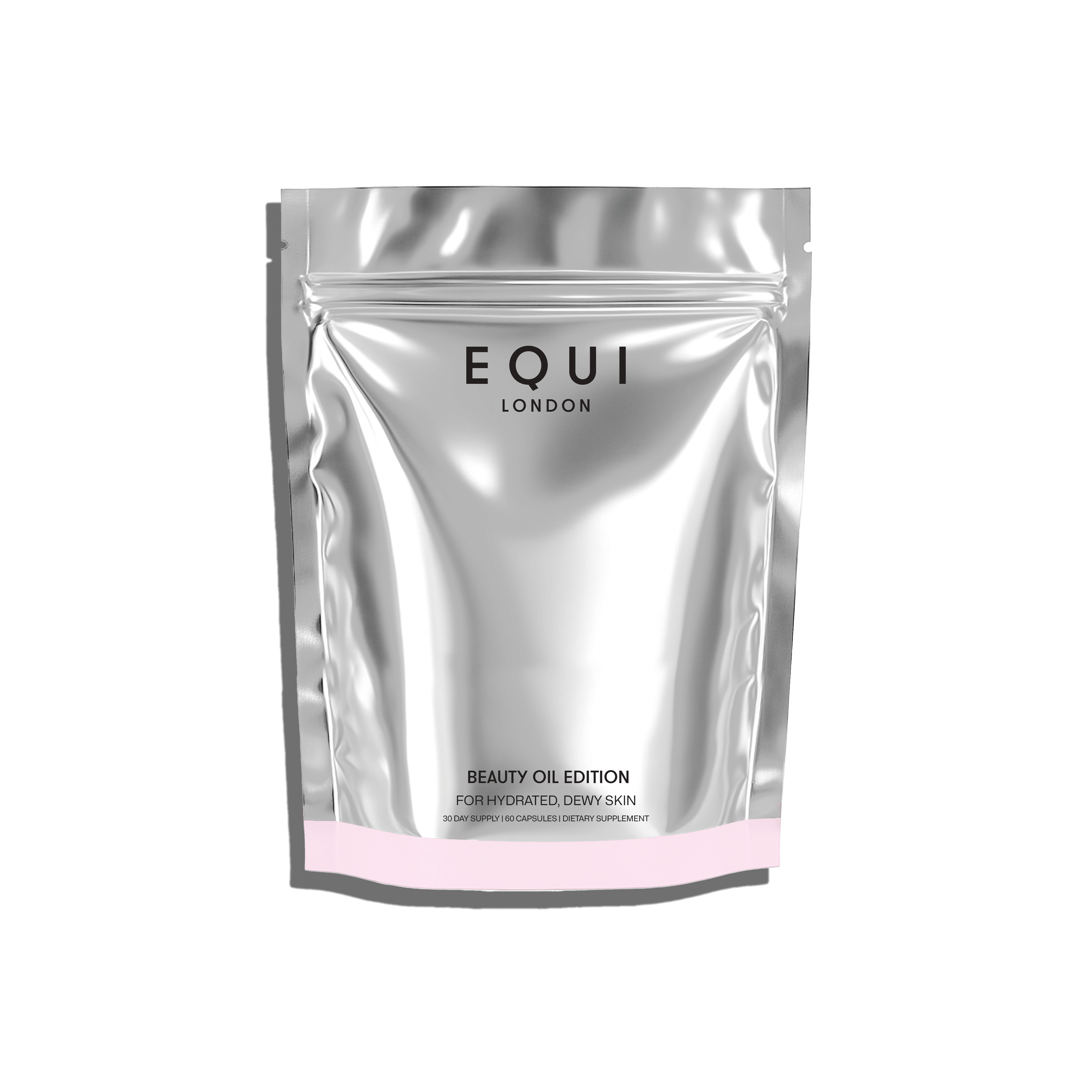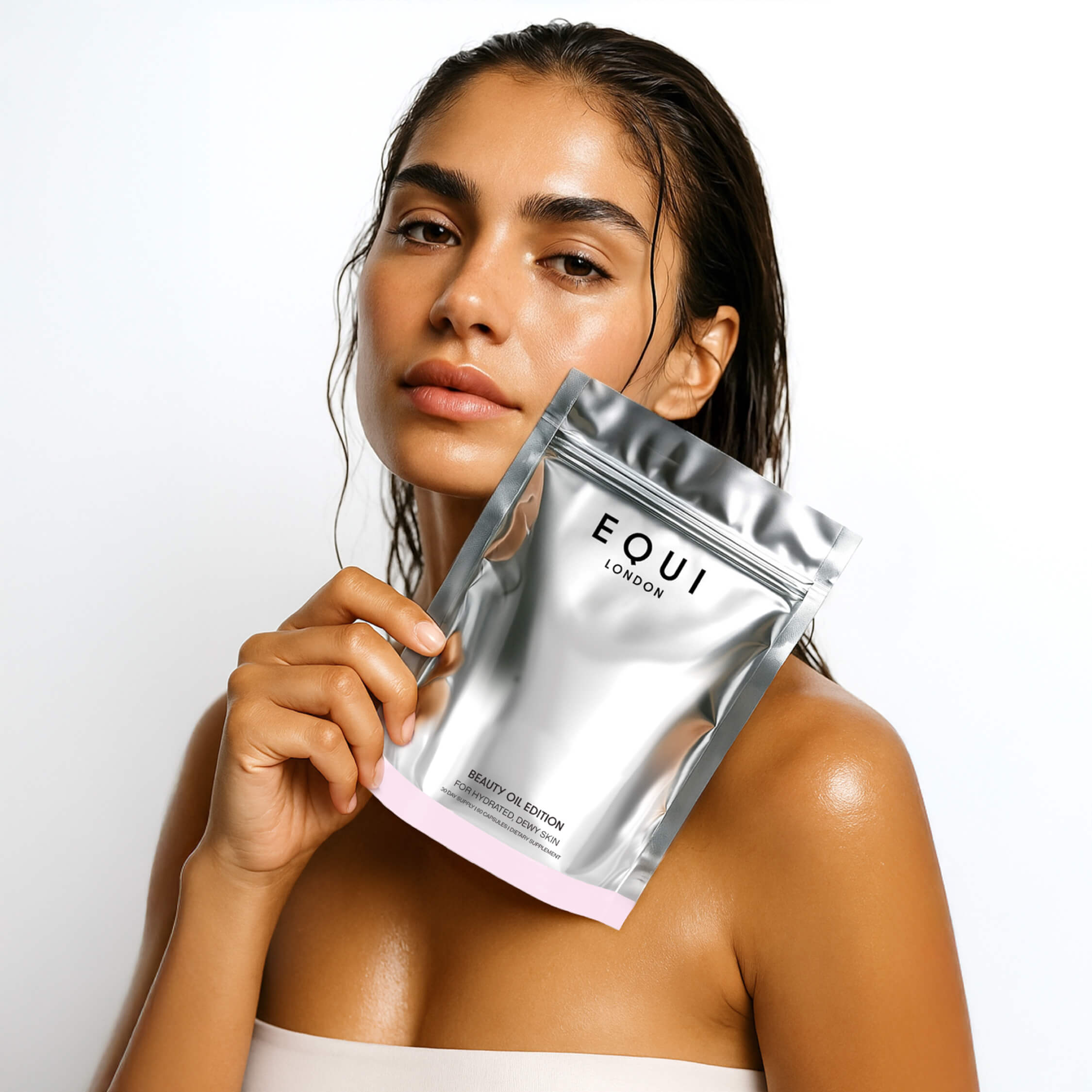
We get the low down from some of the industry’s leading experts on what skincare, treatments, tweakments are best at what ages, as well as how your nutritional needs change throughout the decades…
We’re all very much aware that our skin changes with age so it’s only right that how we care for it does too. “Alongside the biological ageing process that takes place in our skin naturally, it’s also accelerated by the sun’s ultraviolet rays, blue light, smoking, pollution and other lifestyle and environmental factors,” says Dr Anita Sturnham, founder of Decree Skincare and clinic director at London-based, Nuriss. The biggest culprit here is by far the sun which causes up to 80% of premature skin ageing and so with this this in mind, we had to start off this article by saying that no matter what your age, it’s crucial you’re mastering the sunscreen step in your daily routine! This is undeniably the best thing you can do to keep your skin looking it’s best. Always look for one with at least factor 30 and make sure you’re applying liberally. A 50p sized amount should be enough to cover your face. Don’t forget to reapply throughout the day – especially in summer. We love Decree’s Day Shield Spray for this.
In Your 20s
The phrase ‘prevention is better than cure’ springs to mind here - don’t ever think SPF doesn’t matter, even in you 20’s! It’s also wise to be starting a consistent skincare regime which involves cleansing both morning and night to remove any makeup and keeping your pores clean. Keep your skin well hydrated too with a simple moisturiser. It can be tempting to try the latest ‘must-have’ skincare range and overload your skin with lots of products, but a pared-back approach with efficacious ingredients is often best. La Roche-Posay is a great high-street brand which promises affordable prices but does deliver real results.
Although sadly not confined to just your younger years, breakouts and acne are particularly common at this age – especially if you’re experiencing hormonal changes. “As skin cells take six weeks to move from the deep layers of the skin up to the surface, it’s important to try anti-acne treatments for at least this time frame before deciding if it’s working or not. Taking a closeup photo of your skin at the start of a new regime is really useful for comparison,” adds Dr Louise Read, aesthetic specialist and owner of Harley Street clinic, Louise Read Aesthetics. “We all long for quick fixes but persistence wins every time when it comes to acne,” she adds. Other ingredients to look out for in your skincare include salicylic and lactic acid as these all help to regulate oil control and decongest pores. “When it comes to makeup, steer clear of heavy coverage and opt for mineral-based makeup. “I personally love BareMinerals as the particles are so fine that they don’t clog your skin,” says Dr Anita.
For in-clinic treatments, Dr Anita recommends blue light laser therapy programmes to help to get your acne under control. These help to destroy the bacteria in your skin. Once you’ve tackled the cause, she also suggests chemical peels and other lasers to help with any scarring that’s left behind.
“Nutrition wise, breakouts (and any skin conditions for that matter) can be well supported by having a concerted focus on your diet,” says Equi founder and nutritional therapist, Alice Mackintosh. “Your diet should be rich in delivering all the key nutrients that help to nourish your skin. Look for protein and healthy fats as they build your cell membranes and keep them resilient, bouncy and hydrated.” Try and get both food groups at every meal. A colourful selection of fruit and veg will also help your skin in so many ways. Look for cruciferous vegetables (like broccoli, kale, avocado, red peppers, beetroot) and low sugar fruit (like berries, apples, pears and kiwi). Pomegranate is also great for the skin as it contains lots of unique antioxidants that help with inflammation.
“Upping your zinc (through poultry, seafood, bone broth, tahini and pumpkin seeds) is a good idea as it helps with imbalanced testosterone which can lead to acne in some people. You can find this in our Beauty Formula along with many other ingredients that help to address acne at the heart of the problem – often the gut, hormones and immune system” adds Alice. “I’m also a big advocate of flaxseed as it’s beneficial for the gut, hormones and your skin. Just 1 tablespoon a day is enough to reap the rewards.”

In Your 30s
If you’re not already serious about your skincare, now’s the time to start thinking about it properly. “Prescription skincare becomes a great option in your 30’s,” suggests Dr Louise. “This is because it often contains stronger ingredients (such as tretinoin and hydroquinone) and has been approved by a trained, medical professional which means you’re more likely to see visible results,” she adds. “Retinoids are particularly useful in fading brown spots that may have started to appear from sun damage in your younger years and can also be helpful for targeting the appearance of fine lines.” Dr Anita suggests looking for serums with vitamin C or alpha arbutin which are natural, plant-based pigment lighteners. “Treatments that also help with pigmentation include radiofrequency facials, microneedling and mesotherapy,” she adds.
Talking of treatments, though we are all for ageing gracefully, some begin to think about the possibility of a ‘tweakment’ or two in their 30’s. Do make sure you go to someone who really knows what they are doing and won’t overtreat the skin, such as either Dr Louise or Dr Anita.
“I like to start with baby Botox when people are first considering having tweakments. Baby Botox (a lower dose of Botox than usual so less muscle fibres are affected) works well in this decade as it’s relatively easy to freeze some of the facial muscles and so eradicate fine lines,” Dr Louise tells us. “It is very natural-looking and you’ll still maintain normal facial expressions. It suits younger clients and those who want to try something mild or feel a little anxious about looking as though they’ve had work done.”
“It's a good idea to start thinking about supporting your collagen production around now since it begins to decline in your 30’s. Colourful fruits and veg can again help here as they’re rich in vitamin C, zinc, sulphur and silica which help to boost your skin,” explains Alice, adding that Beauty Formula contains all of these as well as absorbable type 2 hydrolysed marine collagen. “Fibre is also important as it helps your microbiome which is largely affected by stress, alcohol and medication. Better gut health is also improved by healthy fats such as oily fish, nuts and olive oil, and anti-inflammatory herbs and spices (turmeric, garlic, ginger) which can all help to keep the gut, and skin, functioning well.”
In Your 40s
Think of this decade as being all about repairing. Common hang-ups around this time include dryness, uneven texture, pigmentation and wrinkles. “Botox can work wonders, but always be sure to do this without freezing your facial expressions and don’t get talked into going back as often as every 3 months – it can lead to a less natural look. Fillers can also be a good option when done carefully as they can help to enhance and lift sunken cheeks or boost thin lips that were perhaps a little plumper 10 years ago,” suggest Dr Louise. “Another great treatment to try in you 40’s is Profhilo – tiny hyaluronic acid injections which help to rejuvenate, restore and hydrate the skin. It gives some instant ‘wow’ factor and then gently helps to stimulate collagen and elastin production over the following month. I like to use small amounts of botox, fillers and Profhilo to make my clients look like they have just got back from a fabulous holiday.”
It not only gives a fresher look to face but results are instant, and it also helps to stimulate collagen production too.”
“Keep prioritising good nutrition but if you feel you need something more, do consider supplementation,” says Alice. “The real secret to glowing skin is feeding it well from the inside to help with gut health and stress and hormone levels – all of which have a strong bearing on how your skin looks.” Again, try our Beauty Formula as it is overflowing with 48 skin-loving ingredients to do just that. Expect to find collagen, resveratrol, hyaluronic acid, pine bark, zinc, vitamin C, super-berries, antioxidants in our very own GlowCutis® blend, as well as probiotics, turmeric, vitamin D and biotin – all amazing skin powerhouses.
In Your 50s And 60s
Peri-menopause might have crept up on you in your late 40’s, early 50’s and this can bring with it a whole host of changes thanks to fluctuating hormones. “Once the menopause then hits, your sex hormone levels decline significantly - particularly oestrogen which is needed for collagen production and to help support skin barrier function. Your skincare strategy now should be to help these new concerns,” suggests Dr Anita. The menopause typically also causes excessive dryness, so Dr Anita suggests switching out anything too stripping like foaming cleansers, harsh exfoliants and facial brushes. “Instead look for cream or gel cleansers and then follow with a water-based, hyaluronic acid toner or serum. At night, again look for gentle serums which help to aid collagen production and boost repair without exacerbating dryness or sensitivity. Granactive retinoids will again do this well,” she adds. Want to know more of our skincare tips for the menopause? Have a read of this.
“There are several treatments which can help to restore a tired-looking face. If you’ve not previously had anything done, it can be tempting to panic but Botox and fillers done well can be quite transformative. If you have lost volume, dermal fillers are the most appropriate,” says Dr Louise. “They contain hyaluronic acid which is naturally found in the skin but diminishes with age. Careful use of fillers can help create a youthful and more rested look.” Other clinic-based treatments that Dr Anita recommends during this decade include resurfacing lasers, radio-frequency and PRP facials and near infrared skin tightening,
It can feel like hard work but don’t let habits slip – keeping up your good diet and exercise habits make all the difference as we age. “Everything above is still relevant when it comes to your food choices, but your new focus should be reducing toxicity as environmental toxins can disrupt your hormones,” says Alice. “Choose organic foods where possible and try to limit your plastic consumption by reducing your use of plastic containers and bottles and cling film. I’d also suggest switching to natural products in your skincare, makeup and homeware. Stay hydrated by drinking plenty of water (aiming for 2-2.5 litres) and cut back on alcohol, sweet drinks and juices. Don’t be afraid of a little sea salt too – it helps keep electrolytes balanced which hydrate us better.” Don’t forget we also have our NEW Menopause Formula which is great for helping to support your bodies hormone balance, which may help with some of the changes that can occur to skin when oestrogen drops.
If you've got sun damaged skin, it's also worth considering pine bark, an amazing antioxidant that has had hundred of clinical rials conducted on it. Studies show that supplementing it can help to improve hydration and elasticity, as well as improving hyaluronic acid levels, and strengthening skin against UV protection which is extremely useful for helping to discourage sun damage.
Other trials have shown that it may help with pigmentation prone skin, combatting brown marks and patchiness resulting from sun exposed skin. We add premium pine bark to our Beauty Formula and Glow Edition supplements.
Disclaimer: As with all information on Equi London, this information is not a substitute for medical advice. No one diet or supplement regime works for everyone and you should always seek help from a GP and registered health expert before making changes to your diet, or before introducing any supplements.
